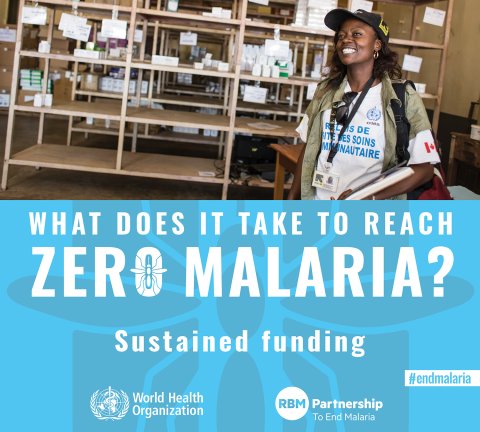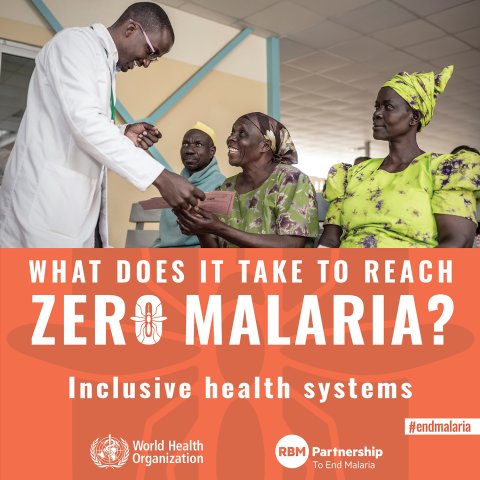World Malaria Day Q&A with Professor Sir Brian Greenwood
To mark World Malaria Day 2021, on 25 April, we posed some questions on the current malaria situation, as well as future challenges and innovations, to Professor Sir Brian Greenwood.
Professor Sir Brian Greenwood
Professor Greenwood is Editor-in-Chief of RSTMH's journal, Transactions. He was RSTMH President from 2005 to 2007, and was awarded the Chalmers Medal in 1977, the Mackay Medal in 1991, and the Sir Patrick Manson Medal in 2001, the Society's highest honour.
Over the last 50 years, Professor Greenwood – Manson Professor of Clinical Tropical Medicine at LSHTM – has reinvented field research in tropical medicine and influenced public health policies. His work, some of which was published in Transactions in the 1980s, demonstrated the effectiveness of insecticide-treated nets, now the cornerstone of malaria control throughout Africa.

What is your view of the current global malaria situation as we approach World Malaria Day?
Steady progress has been made in the control of malaria during the past two decades with deaths and cases falling steadily, and an increasing number of countries have been recognised officially by the WHO as having eliminated malaria i.e., being free from any local transmission of malaria for a period of at least three years.
However, during the past two to three years, [this] progress has flattened out, especially in some high malaria burden countries in Africa.
Reversing this trend is going to require more effort in several areas, but provided that sufficient political and financial support from both national and international sources is provided, I am optimistic that the steady progress seen during the past two decades can be restored.
However, I think that eradication of malaria (the disappearance of the last human malaria parasite) is still many years away.
How has the COVID-19 pandemic affected progress towards eliminating malaria?
COVID-19 will almost certainly have had some adverse effects on malaria, enhancing morbidity and mortality from the infection and slowing progress towards malaria elimination in some countries.
It is still too early to know exactly how much damage will have been done, but this may prove not to be as severe as might have been expected.
Lessons were learnt during the Ebola epidemic in West Africa during which the virus probably caused more indirect deaths from malaria than it did directly because of breakdowns in the health system and reluctance of patients to seek appropriate medical care.
This time, international organisations, including the WHO, and national malaria control programmes moved swiftly at the start of the epidemic to adopt malaria control measures that could be implemented safely despite COVID-19 and to ensure that supply chains did not break down. The impact of COVID-19 on malaria may emerge to have been less severe than might initially have been feared.

What are the most interesting innovations being worked on currently to help the fight against malaria?
An area of research that has the potential to radically change progress to malaria elimination and eventual eradication is the gene drive technology which, through genetic manipulation of the main vector species of malaria, could result in a collapse of the population of this mosquito species or make these mosquitoes resistant to malaria infection.
Adoption of these innovative approaches to malaria control still faces a number of challenges such as safety, effects on the environment and public acceptance of this approach.
However, in the medium term, it has great potential.
What are the most pressing issues facing the global community and their work to tackle malaria?
The emergence and spread of high levels of resistance to drugs and insecticides is a threat, but a manageable one, as long as the financial support for the development of new antimalarials and insecticides is sustained and keeps pace with the emergence of resistance.
There is a risk that in the post COVID-19 world, with many governments across the world facing financial challenges, [this] financial support will not be forthcoming.
Without the availability of new drugs and insecticides to replace quickly those currently in use should this become necessary, there could be a disaster.
In your opinion, what is the one area of malaria work that could make the biggest difference to people’s lives?
I don’t think that it is possible to pick on just one area of malaria work that is going to have a major effect on people’s lives and that, unless some unexpected new approach emerges, progress in malaria control will be made only by advancing this on several fronts.
These include increasing coverage with the tools that we already know are effective, using our existing tools in more innovative ways and developing new and more effective drugs, vaccines and insecticides.
None of this will be possible unless funding for malaria is sustained or, ideally, enhanced, and it could be argued that the most important area of malaria work at the current time is the advocacy that will ensures that funding for malaria control is enhanced, or at least sustained.
